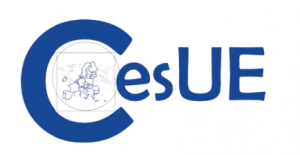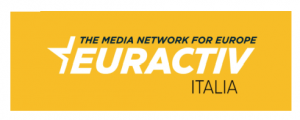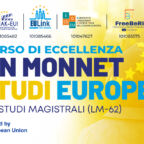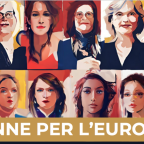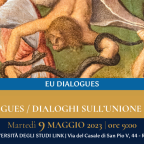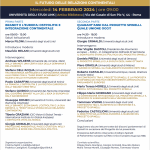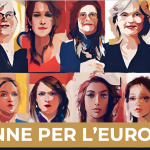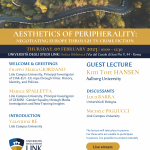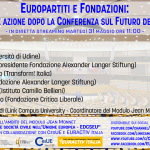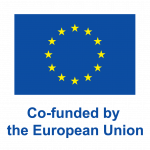
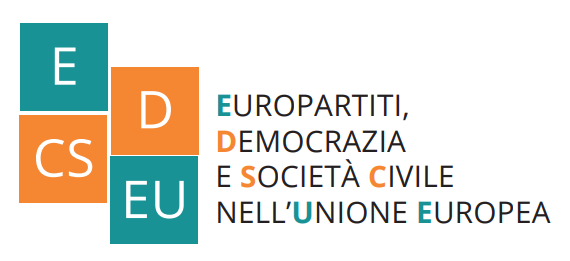


“Europarties, Democracy and Civil Society in the EU” è un progetto di formazione composto da un modulo di insegnamento collegato all’insegnamento di Storia dell’integrazione europea e fornisce un importante offerta formativa ed esperienziale legata allo studio e all’approfondimento delle diverse famiglie politiche europee con l’analisi del loro pensiero, dei diversi livelli organizzativi (partito europeo, gruppo al Parlamento europeo, fondazione politica europea e principali membri) e del loro impatto sulle istituzioni europee (e in particolare nell’attività al Parlamento europeo) e nella società europea.
Una seconda parte del modulo fornisce una conoscenza delle articolazioni degli interessi e delle organizzazioni della società civile europea che trovano parzialmente espressione nel Comitato delle Regioni (enti locali) e nel Comitato economico e sociale (organizzazioni produttive e gruppi di interesse, sindacati ed organizzazioni sociali), nonché delle principali espressioni di organizzazioni non governative e sociali europee e di network coinvolti nei processi di formazione delle politiche europee.
Infine, in riferimento allo sviluppo della democrazia europea, analizza le caratteristiche e gli strumenti della cittadinanza europea e le proposte e gli attori transnazionali più rilevanti coinvolti nella discussione sul futuro dell’Europa. A questo riguardo, partendo da una ricognizione storica delle mobilitazioni civiche per la riforma dei trattati e lo sviluppo dell’integrazione europea (movimenti europeisti e federalisti, movimenti euroscettici, ecc.), gli studenti sono costantemente coinvolti in attività cooperative per acquisire conoscenza e competenze relative al funzionamento dell’Unione europea e al suo sviluppo democratico, in incontri con esponenti delle organizzazioni prese in esame, seminari e dibattiti sui temi affrontati.
“Europarties, Democracy and Civil Society in the EU” is a training project consisting of a teaching module linked to the History of European Integration teaching and provides an important educational and experiential offer linked to the study and in-depth study of the different European political families with the analysis of their thinking, the different organisational levels (European party, group in the European Parliament, European political foundation and main members) and their impact on the European institutions (and in particular in the work in the European Parliament) and European society.
A second part of the module provides an understanding of the articulations of European civil society interests and organisations that find partial expression in the Committee of the Regions (local authorities) and in the Economic and Social Committee (productive organisations and interest groups, trade unions and social organisations), as well as of the main expressions of European non-governmental and social organisations and networks involved in European policy-making processes.
Finally, with reference to the development of European democracy, it analyses the characteristics and instruments of European citizenship and the most relevant transnational proposals and actors involved in the discussion on the future of Europe. In this regard, starting from a historical survey of civic mobilisations for the reform of the treaties and the development of European integration (pro-European and federalist movements, Eurosceptic movements, etc.), students are constantly involved in cooperative activities to acquire knowledge and skills related to the functioning of the European Union and its democratic development, in meetings with representatives of the organisations examined, seminars and debates on the issues addressed.
Webinar “Europartiti e fondazioni: pensiero e azione dopo la Conferenza sul futuro dell’Europa” (31/05/2022)
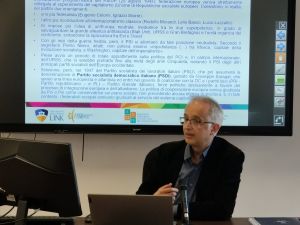


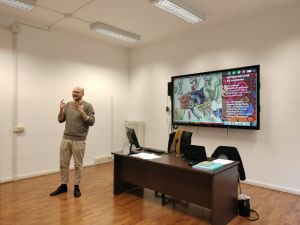


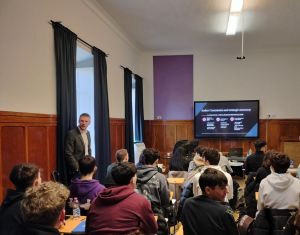


Notizie correlate
Eventi correlati
PRESENTAZIONE DEL LIBRO DI HILDA MONTE “THE UNITY OF EUROPE”
DALL’OSTPOLITIK ALL’UNIONE EUROPEA
Donne per l’Europea
EU Dialogues/Dialoghi sull’Unione Europea
Presentazione del volume “Tempo (quasi) scaduto” di Massimo Rubboli
Presentazione del volume di Stefano Bellagarda “L’Europa come modello di crescita, innovazione e sostenibilità”
L’EREDITÀ COLONIALE EUROPEA: L’EUROPA IN AFRICA / L’AFRICA IN EUROPA
AESTHETICS of PERIPHERALITY – Negotiating Europe through TV Crime Fiction
Europartiti e fondazioni: pensiero e azione dopo la Conferenza sul futuro dell’Europa
Segui il progetto
To the end


